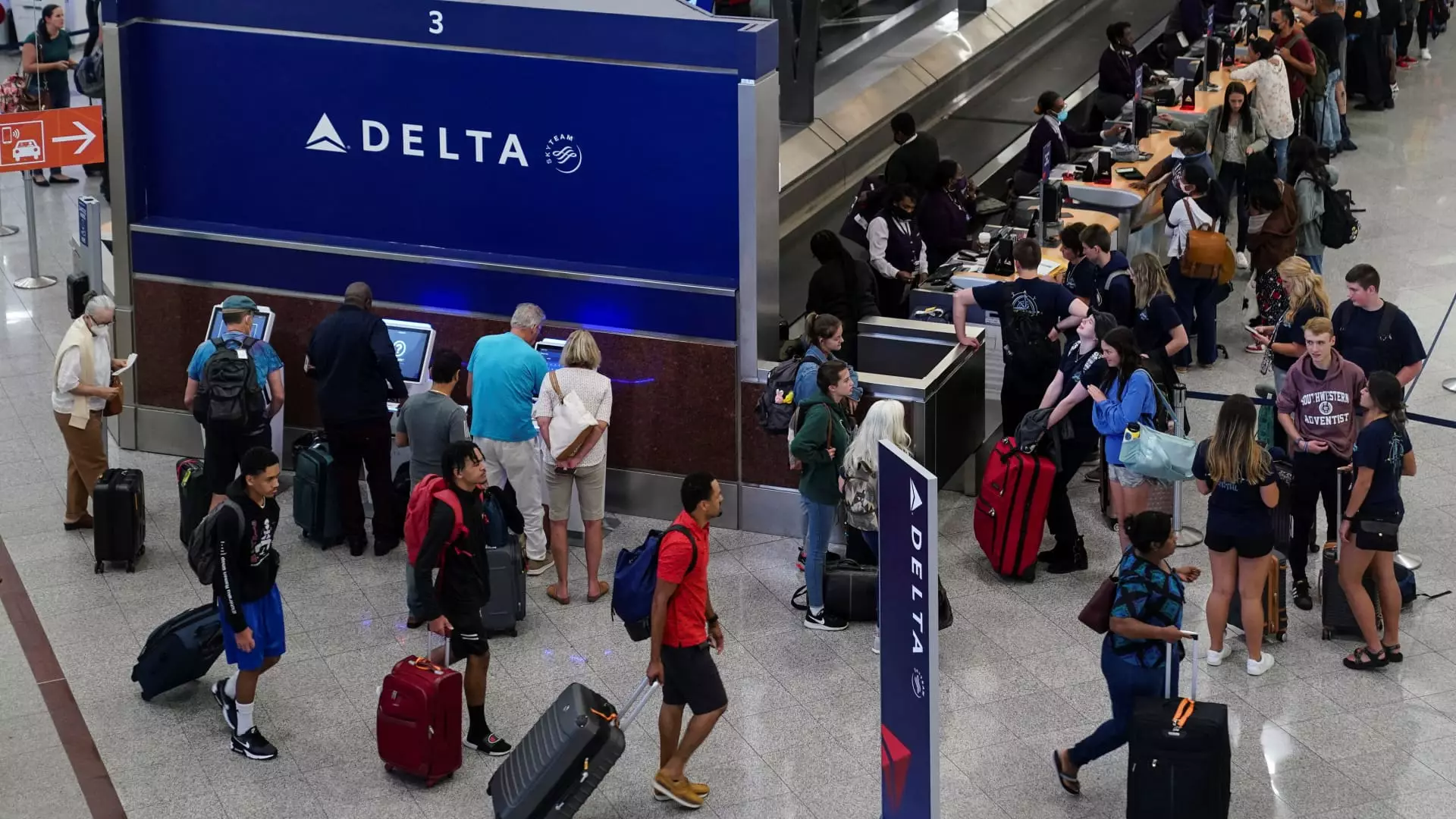On Wednesday, Delta Air Lines unveiled an optimistic forecast for the future, projecting continued sales growth amidst a backdrop of a resilient economy. The airline attributed this positive outlook to strong travel demand and a noticeable uptick in credit card spending, particularly in its premium offerings. This analysis aims to delve into the nuances of Delta’s financial strategies and market positioning, which underscore its ambition to enhance profitability substantially in the upcoming years.
Delta announced its expectation of mid-single-digit growth in revenue for 2025, paralleling analysts‘ predictions of around 6%. Such forecasts are essential in understanding how Delta positions itself against evolving market dynamics, especially given the competitive landscape of the airline industry. While costs are anticipated to rise — projected to increase in the low single-digit percentage range excluding fuel — Delta remains steadfast in maximizing its operational efficiency. These figures reflect a delicate balance the airline must maintain amidst fluctuating economic conditions.
Strategic Focus on Premium Travel
Stellar performance in the airline industry often hinges on understanding consumer behavior, and Delta appears to have mastered this art. The airline has concentrated heavily on attracting high-spending travelers, boasting that 57% of its revenue now originates from premium seats and its lucrative loyalty program. This marks a significant evolution from 2010 when 60% of revenue came from main cabin ticket sales. Delta’s strategy to cater to an affluent clientele aligns well with demographic trends showing wealth growth in high-earning households since 2019.
Moreover, Delta’s partnership with American Express is a critical component of its revenue strategy. The airline has projected an impressive $7 billion in remuneration from this partnership for the year, with aspirations to reach a staggering $10 billion in the long term. The focus on premium offerings sets Delta apart from competitors, especially as it continues to target millennials and Gen Z travelers, demographics that are increasingly influencing the travel market. In this way, Delta not only bolsters its revenue but also adapts to a changing consumer landscape.
While Delta maintains a positive outlook on consumer spending, the broader retail environment presents a more cautious narrative. Notably, companies like Target have revised their profit forecasts downward, attributing this shift to a slowdown in discretionary spending and rising operational costs. This dichotomy raises questions about the sustainability of Delta’s optimistic projections and whether they can continue to thrive as other sectors encounter headwinds.
Despite such challenges, Delta’s strategic initiatives, particularly in enhancing its premium seat offerings, underscore its commitment to capturing a larger share of high-end travelers. The competition with airlines such as United Airlines demonstrates the ongoing race to innovate, particularly with the introduction of more luxurious seating options, such as lie-flat suites. Delta’s bold moves to rebrand its first-class experience have positioned it well for future profitability.
Delta’s endeavor to evolve its cabin class segmentation illustrates a larger trend within the airline industry. The past 15 years have seen a seismic shift in customer purchasing behavior, moving from complimentary upgrades to an era where over 70% of domestic first-class seats are now purchased outright. Glen Hauenstein, Delta’s president, notes that this transformation was not without its challenges; initial resistance from frequent flyers has given way to a more favorable perception of merit-based ticketing.
The airline’s ambitions don’t stop at merely enhancing premium travel; instead, Delta is also in the process of assessing new opportunities for upgrading travel experiences across the board. This ongoing dedication to innovation and market adaptability signifies the potential for further growth in an industry marked by volatility.
Delta Air Lines stands at a critical juncture of growth, buoyed by a favorable economic climate and a strategic pivot towards premium offerings. While the uncertainties of the market loom large, Delta’s proactive approach towards understanding consumer behavior and optimizing revenue streams positions it favorably for sustained profitability. As such, it will be essential for Delta to maintain its competitive edge in an increasingly crowded marketplace while navigating the complexities of evolving consumer needs and industry challenges. The airline’s differentiated strategies could very well define its success in ushering in a new era of growth in the airline industry.


Napsat komentář